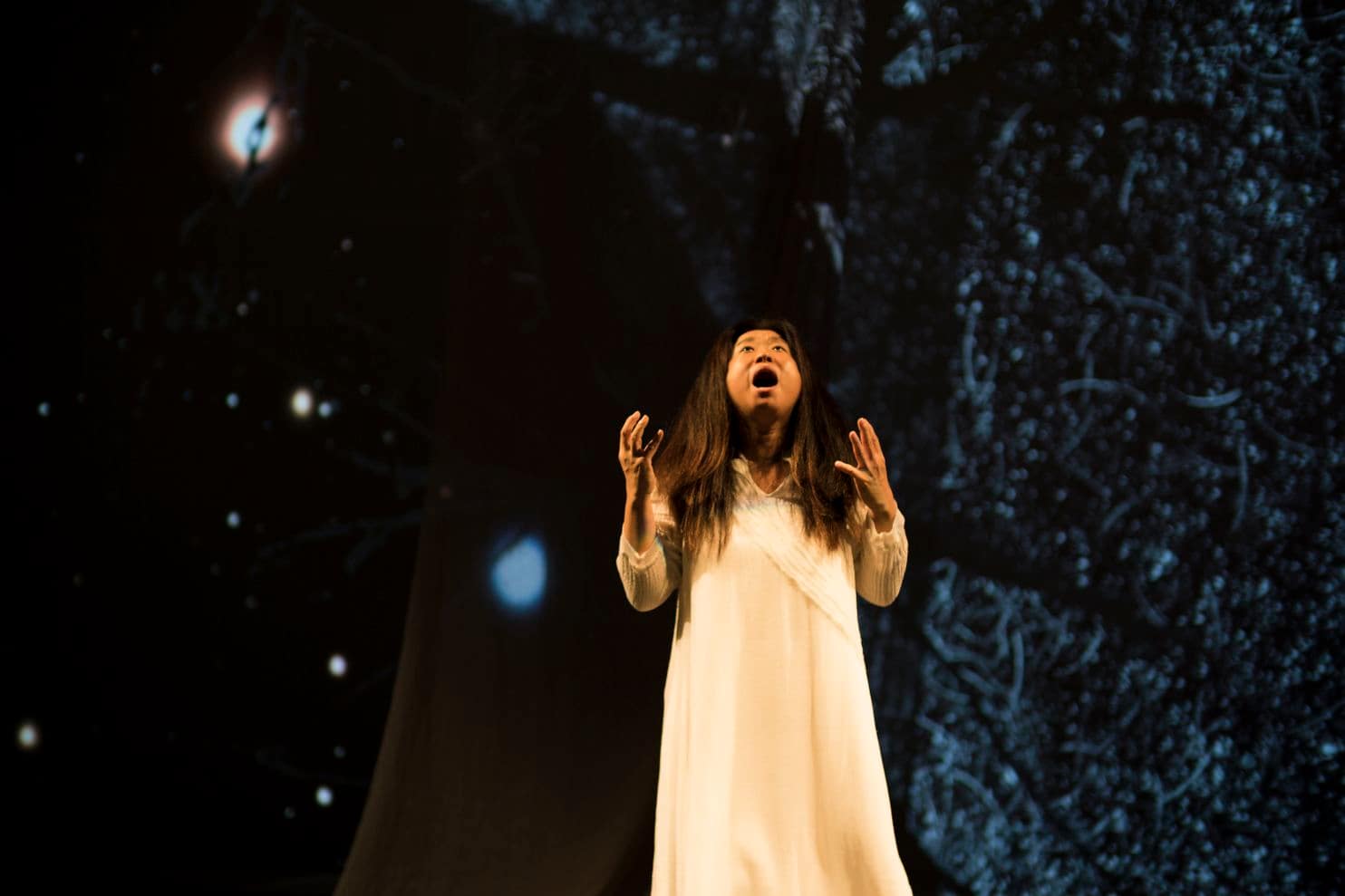Originally published in The Washington Post by Anne Midgette on November 4, 2018.
Classical music is art and should be uncompromising in realizing its vision. Classical music is seeking its place in contemporary life, and should reach out to new audiences by being as delightful and captivating as possible. These are two perfectly valid philosophies, but to see each espoused in back-to-back performances in Washington this weekend felt like moving from one planet to another.
At one extreme was the cold, uncompromising brilliance of “On the Threshold of Winter,” Michael Hersch’s 2012 opera-cum-song-cycle, which kicked off the brand-new Corcoran New Music Festival at the Corcoran on Saturday night. Hersch is an accomplished and intense composer whose music has an almost fanatical focus on its own aims. He found a kindred sensibility in the poetry that Marin Sorescu, the Romanian author, wrote in 1996 during the last five weeks of his life: a bleak, honest look in the face at approaching death.
Confronting death is at once the most and least dramatic story the human mind can imagine. When you sat down in the darkening atrium of the Corcoran, dimly lit by the music stands of an eight-piece instrumental ensemble led by Tito Muñoz, you knew you were about to sit through someone’s death, so you might have said there was no suspense in the two-hour-plus performance that lay ahead. Yet there was a fascination to following Sorescu’s words — his terror, his gallows humor, his pain and his resignation — set to the searing cries and spasms and dark drumbeats of Hersch’s music.
The piece is a tour de force for the soprano Ah Young Hong, who directed this version of a work she has performed since its world premiere at the Brooklyn Academy of Music four years ago. She weeps, she howls, and she sings over and over in a stratospheric range that renders text (fortunately projected as part of the accompanying video) unintelligible; this is music that views words as being at its mercy.
The work is called an opera, and it’s certainly conventionally operatic in its treatment of the fear and passion that accompany death — down to tearing away even a flicker of happiness, forcing the singer to shriek the word out on a high note and then collapse to the floor. There is much humanity in the piece, but this setting eradicates the wry humor that glimmers through Sorescu’s text: The music focuses on the bleak, unalloyed terror and acceptance, drumming it into you over and over with harsh blatts from the wind-heavy ensemble and brief snatches of beauty: a sustained clarinet phrase, or the tread of anthem-like chords in the piano, supported by the grim, dark beat of a drum.
At the other extreme of the artistic spectrum was a program that deliberately set out to be a cornucopia of delights, and succeeded. The National Symphony Orchestra began its “Declassified” series of Friday-night concerts in 2015, hoping to lure new audiences with pop stars and shorter programs. The concerts were wildly uneven at first, but Ben Folds, the singer-songwriter who became its artistic adviser in 2017 has clearly been working with the orchestra to develop the concept. Friday night’s concert with Regina Spektor, the pianist-singer-songwriter, which admirably balanced orchestral and pop music without doing violence to either, showed that everyone’s efforts are paying off.
One reason the program succeeded so well is that the Russian-born Spektor, trained as a concert pianist, so clearly loves orchestral music; she seemed nervous and star-struck and starry-eyed about appearing onstage with the NSO, and her love was infectious. She picked one of the pieces on the program, the Dance of the Knights from Prokofiev’s “Romeo and Juliet,” and told the audience, “To me this piece shows how amazingly the orchestra can rock your soul,” and the orchestra proceeded to demonstrate what she meant when James Gaffigan, the conductor, then plunged the players into the huge, menacing, aching chords at the beginning of the selection.
Another reason it succeeded is that the NSO, rather than offering music that pandered to the audience, played selections from its current program — including the first movement of Shostakovich’s 2nd piano concerto, with the soloist, Simon Trpceski, showing a lot more humor than he had the preceding night. But the audience got plenty of Spektor, too: She sang seven numbers, including “Dear Theodosia” from “Hamilton” in a duet with Folds that crossed several different genre boundaries: two pop stars singing a song from a hip-hop musical with a symphony orchestra.
These two evenings were obviously conceived for different audiences and different goals. But whatever your tastes, it is affirming to see two strong concerts making such different and such excellent cases for themselves, their goals and even the field at large.
The Corcoran New Music Festival continues with performances by the percussion-piano quartet Yarn/Wire and student musicians, including a new work, “The Winter Journey,” on Nov. 9.


